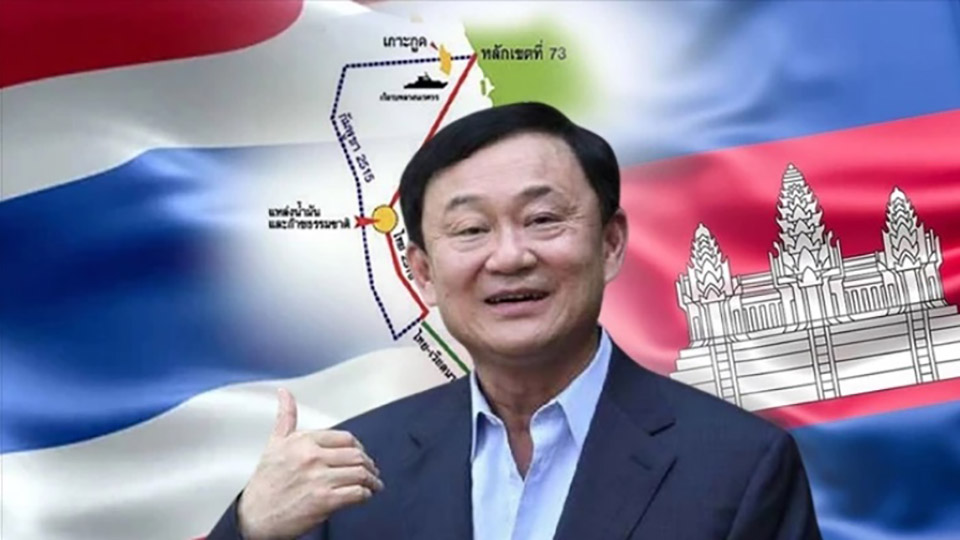
BANGKOK, Thailand – Thaksin Shinawatra is reportedly steering Pheu Thai’s government to implement sweeping policies, including controversial initiatives like establishing casinos, permitting 99-year land leases for foreigners, and energy sharing with Cambodia near Koh Kood. These measures aim to secure voter support ahead of the next election but have sparked widespread criticism and concerns over national security.
According to Associate Professor Dr. Wanwichit Boonprong, Deputy Dean of Rangsit University’s Faculty of Political Science, Thaksin’s direct involvement reflects skepticism toward the leadership of Prime Minister Paetongtarn Shinawatra. “Thaksin’s active role reassures supporters and shifts public focus, allowing the party to advance multiple policies simultaneously while mitigating concentrated opposition,” Dr. Wanwichit observed.
Controversial Projects Stir Public Outcry
Among the policies under scrutiny is a proposal to negotiate energy exploration with Cambodia near Koh Kood, raising concerns over national sovereignty and transparency. Other contentious initiatives include legalizing casinos under the guise of “entertainment complexes” and relaxing real estate laws to allow foreign nationals to lease land for up to 99 years.
Critics argue that these policies, pushed aggressively by Thaksin despite public dissent, could undermine the country’s stability. Social media is abuzz with debates about potential conflicts of interest and the long-term implications of these measures.
Populist Economic Stimulus Under Fire
Pheu Thai’s economic stimulus efforts have also faced backlash, including a 10,000-baht digital money handout rebranded as a cash-based scheme. While aimed at low-income groups initially, Phase 2 controversially extends to individuals aged 60 and above who meet income and asset criteria—sparking allegations of fiscal irresponsibility.
Former Finance Minister Thirachai Phuvanatnaranubala criticized the digital money program for potentially violating financial discipline laws and failing to target truly vulnerable groups. “Allocating funds to those with adequate financial stability is neither necessary nor efficient,” Thirachai warned, adding that the policy risks burdening future generations with public debt.
Debt Restructuring and Farmer Subsidies
Other initiatives, such as debt restructuring and agricultural subsidies, have been better received. The debt restructuring program offers interest payment deferrals for up to three years to borrowers with loans under specific thresholds. Meanwhile, a subsidy providing 1,000 baht per rai for rice farmers has been welcomed, though its long-term impact on economic recovery remains uncertain.
Thaksin’s Dominance: Strategic or Risky?
Dr. Wanwichit emphasized that Thaksin’s hands-on approach reflects a calculated political strategy. By pushing multiple policies simultaneously, the government aims to dilute opposition and test public receptiveness. However, critics worry that this approach prioritizes short-term political gains over sustainable development.
“The government seems to employ a ‘scattershot strategy,’ advancing numerous initiatives to gauge public response. Positive feedback will drive further implementation, while controversial topics may quietly fade,” Dr. Wanwichit noted.
As Thaksin’s influence looms large over Pheu Thai’s governance, questions persist about whether the party’s policies align with the public’s long-term interests or merely serve political expediency.










